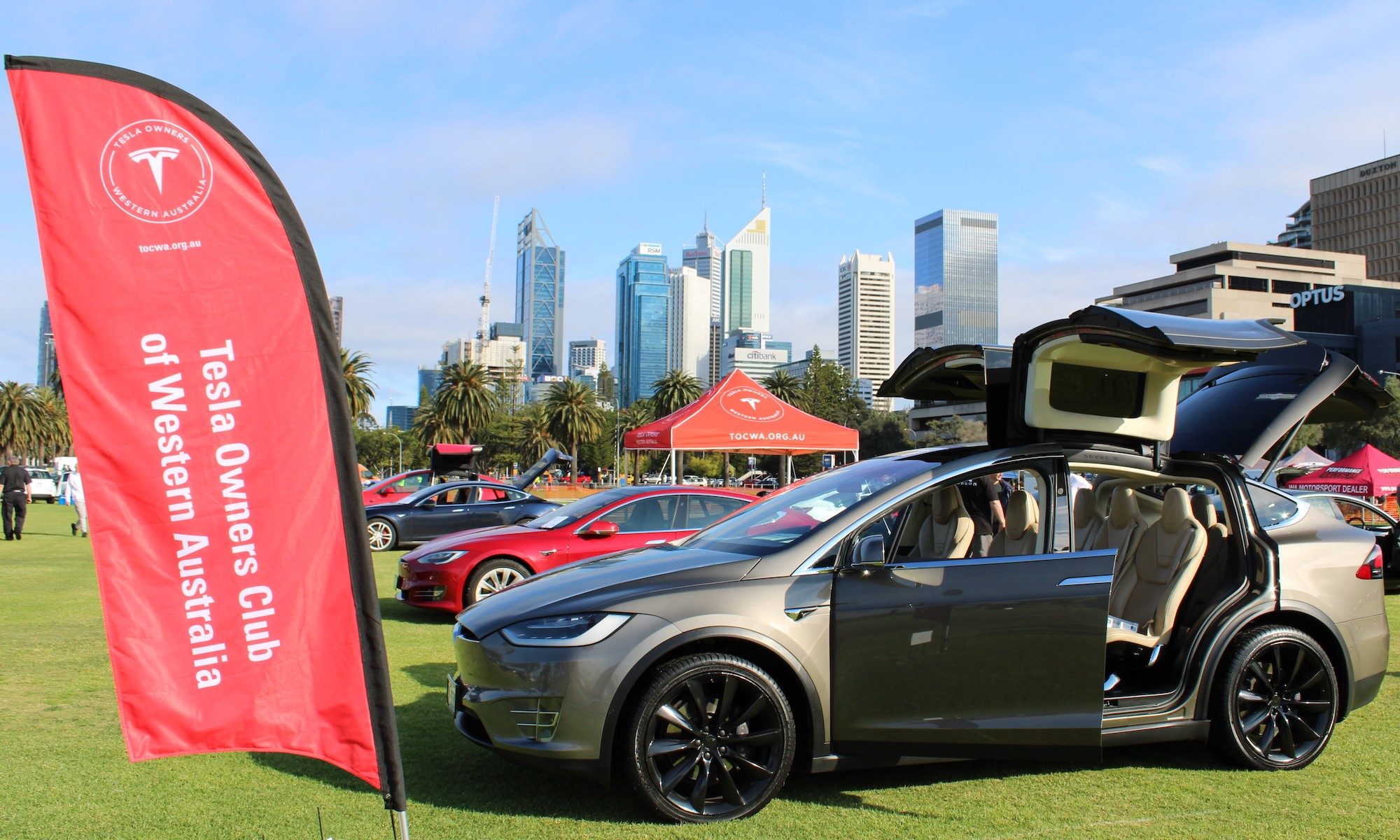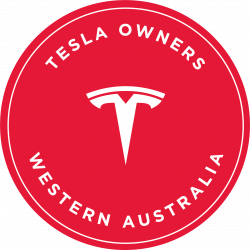Great to see so many come out for a play in the rain on Sunday.
A guide to Tesla destination charger etiquette
There are no real rules for the use of Tesla destination chargers but there is an etiquette that individual EV owners would be wise to follow so the freedom of use is not restricted for everyone.
Firstly a history of destination chargers in Australia:
A Tesla destination charger also known as a High power wall charger (HPWC) is virtually the same as the device most Tesla owners have installed at home. As well as Tesla providing a unit to each new Tesla owner they also provide one and sometimes two complimentary chargers to approved business’s around the country, you may find them in a 5 star hotel, you may also find one at a small Cafe in a country town.
Up until around late 2017 the installation cost was also paid for by Tesla, since that time any business looking to install destination chargers are almost always required to pay the installation cost, in some areas with no electrician nearby this can be up to $1500, a big outlay for a charger that may only attract 20 cars in its first two years, for many locations they’re never going to recoup the cost, they often know this but are keen to be part of a sustainable future.
So how did all the hundreds of destination chargers end up at locations spread all over the country? Various reasons but significantly many early destination chargers were installed due to the hard work and persistence of Tesla vehicle owners who encouraged businesses to take the risk and accept a destination charger from Tesla, bear in mind that many of these business owners had never heard or seen of Tesla until a few moments earlier when one pulled up in the carpark. In Australia circa 2015 a Tesla was about as believable as a flying DeLorean, just image the discussion that followed, imagine the patience and belief that Tesla owner had as he convinced the business owner to install a Tesla destination charger.
So what is the etiquette for using Tesla destination chargers?
For large city hotels and shopping centre’s that received chargers and installation cost for free they’re not really going to be too concerned with the added cost to their already massive electricity bills, I’m sure they’re keen for EV owners to return the favour and be a paying customer, I’m also sure they’re not going to chastise every owner that sits in their car looking like a stalker, but for many smaller businesses that installed chargers, many at an unreasonable installation costs some ethical behaviour is required from EV owners.
Many businesses are showing goodwill in advance hoping an EV owner will come in and purchase a meal, book a room or make some other financial contribution to the premises. If they require a fee for using the charger it very well could be previous EV owners had shown no good will in return, sometimes this is a misunderstanding based on who pays for the electricity, for others it’s a disregard for others, only a small percentage of drivers behave this way but it quickly ruins it for the vast majority.
A few tips to remember:
*Before arrival check on Plugshare for any potential cost to charge, you can check on the Tesla touchscreen but this information is not always up to date.
*If you’re still unsure of the cost go in and ask the staff, they may well say it’s free because you bothered to ask.
*If it’s your first visit ask permission before plugging in, courtesy may get you a free charge and a positive conversation.
*If you don’t like the price being requested for charging don’t use the charger, but also keep it polite, don’t complain and don’t rant on social media, your behaviour effects all those that follow.
*If the destination charger is fairly new and staff don’t know how much to charge be generous, if your car has consumed $7.45 of electricity round it up $10 or more, it’s very likely the business owners have just spent well over a $1000 on an installation that will never recover the money, you as a driver are still making a big saving compared to a petrol vehicle.
*If the staff decline payment for charging but you still feel the need to pay, put some cash in the staff tip jar or the RFDS (charity) collection tin.
Happy motoring!
Navigate using your smart phone Pro Tip
This video shows how you can send navigate destinations using the map apps on your smart phone
Road-trip charging Pro Tip
If you’re about to go on a long road trip, this video shows how to fully charge up your car while still looking after the battery pack.
Lancelin Drive Day 28th June
We are pleased to announce a family drive day to Lancelin next Sunday 28th June.
We will be gathering at the Alkimos Tesla Destination charger at The Gateway Shopping Precinct, 15 Graceful Blvd, Alkimos WA 6038, from 10:00am, before driving in convoy to Wangaree Park, 8 Rock Way, Lancelin WA 6044 at about 11:00am.
We expect to arrive at Lancelin at about noon.
Wangaree park has numerous facilities including shaded playground, skate park, gazebos, BBQs and public toilets. There is also a bakery across the street and an IGA around the corner.
Bring a picnic and enjoy a relaxing afternoon at one of Western Australia’s best kept holiday secrets.
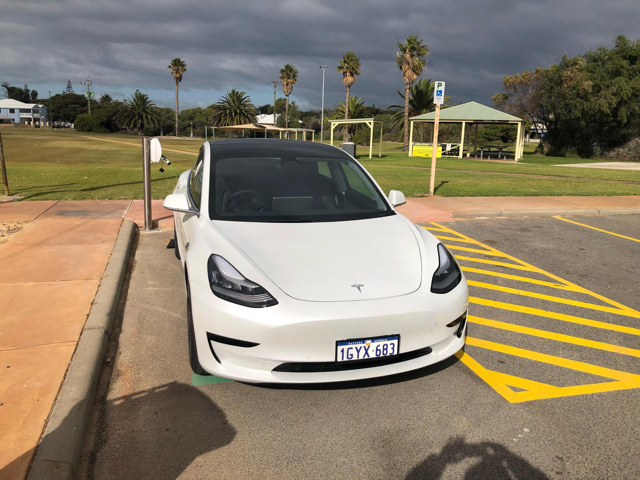
Wangaree Park PlugShare reference: https://www.plugshare.com/location/241564
Alkimos Tesla Destination Charger PlugShare reference: https://www.plugshare.com/location/130455
Charge port opening Pro Tip
Ever wondered how many ways there are to open the charge port?
This video shows all.
Set or change your Home/Work location Pro Tip
Ever wondered how to easily set or change your Home or Work location?
This video shows how.
Charge port unlock Pro Tip
Ever wondered how to unlock the charge port without using the touch-screen?
This video shows how:
One-touch Navigate Pro Tip
Ever wondered how to navigate to work or home with a single touch?
This video shows how:
Why the push for Hydrogen Fuel Cell Vehicles?
I’ll get straight to point on my personal view, using Hydrogen in heavy industry has good potential, replacing inefficient and heavily polluting fossil fuels with an energy storage medium that can be made from renewable energy is a step in the right direction. The problem is the large and ever increasing finances being used to market the “Hydrogen economy” is seemingly aimed at promoting Hydrogen fuel for road transport, specifically passenger vehicles.
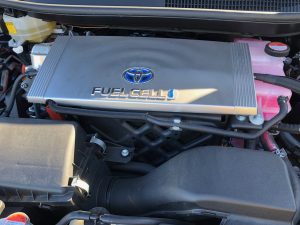
When internal combustion engines were the only transport drivetrain possible the message was HFCVs have potential but they’re still at least 10 years away, this message has now turned to why buy a Battery Electric Vehicle (BEV) when the better HFCV has almost arrived. Let me be perfectly clear, competitive Hydrogen Fuel Cell Vehicles were 10 years away in 1980, they were 10 years away in the year 2000 and now in 2020 they are still 10 years away.
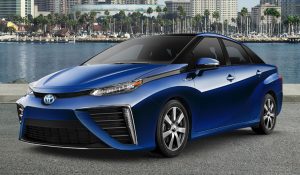
If HFCVs are apparently better than BEVs what advantages do they have? Basically in two areas and they’re both debatable, potential 5 minute refills and 600kms per tank is only an advantage in country areas for drivers with large bladders, around the city and suburbs where the average car travels 40kms per day it will not improve the driving experience.
So what are the disadvantages compared to a pure Battery Electric Vehicle? Without making this a long technical article I’ll just point out a few of many: HFCVs have far less performance, less interior room; they can’t be refilled at home as can be done with BEVs; they have more serviceable parts that add to the running and production costs; but most significantly the refueling cost per kilometre driven is multiple times more expensive than a BEV. The last is due to two clear reasons: one is the need to purchase fuel from a centralized energy system and two is the enormously inefficient process of producing and transporting Hydrogen fit for a vehicle, currently it requires 3 times the overall energy to move a HFCV the same distance as BEV. Regardless of the initial power source it would require 3 times the Solar farms, 3 times the Wind turbines or most significantly 3 times the Natural Gas to move a large fleet of Hydrogen vehicles the same distance as a fleet of Battery Electric Vehicles, that’s a massive waste of resources and a massive waste of money, money that will be extracted from the wallets of drivers gullible enough to fall for the Hydrogen Fuel Cell Vehicle sales pitch.
